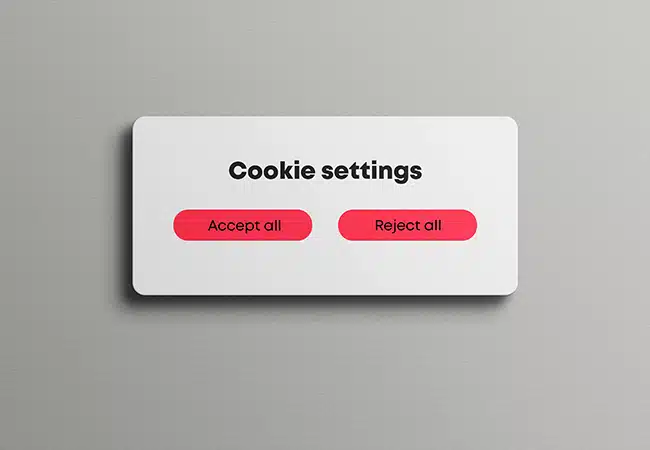Consent management: To build or to buy?
Posted: August 22, 2023
As organizations scale their communication efforts, naturally the level of complex data they collect grows, too.
Pair this with continually evolving privacy regulations and ramping enforcement, businesses often come to a pivotal decision on how they manage consent.
Should they build their own consent management solution in-house, or invest in an existing technology platform?
Large businesses with internal development teams often lean towards the DIY approach. They have the technical skillset required on-hand and they can steer the development of the project exactly how they need to fit the bespoke needs of the business.
However, building a consent management solution in-house can be a short-sighted approach, with an underestimation of the long-term maintenance and development required for such a complex system. In particular for a system that will require extensive configurability to meet the undulating legislative landscape.
Before you decide, this article walks through the key considerations of building your own consent management system versus the alternative of working with a third-party consent management platform to help you make an informed choice that aligns with your organization’s goals and resources.
- Building in-house: The only way forward for complex requirements?
- The expertise required to build a Consent Management Platform
- The pros and cons of an in-house consent solution
- The case for off-the-shelf solutions
- Not all CMPs are created equal
- Choosing a third-party vendor: Advantages and considerations
Building in-house: The only way forward for complex requirements?
Organizations seeking complex compliance requirements may initially look at building in-house, based around challenges with the competence of the external platform, the limited control provided by the service provider, customization capabilities, and scalability.
These concerns are valid but fall short of other key features that some pre-built consent management platforms on the market offer, including robust compliance features, low cost, resilient security, easy maintenance and optimized scalability.
Businesses that have large volumes of user data pouring into their systems across multiple jurisdictions and platforms may well fear third-party vendors are simply not able to manage their complex requirements, which is why extensive vendor research is crucial to making an informed decision.
As privacy regulations and laws vary from region to region and are subject to frequent updates, organizations operating in multiple jurisdictions may face complexities when building an internal consent management solution. And this is just one of many other areas where businesses may get stuck maneuvering consent management on their own.
The complexity of consent management originates mainly from dealing with sensitive personal data, such as user PII. If this data is not secured using access control and technologies like encryption, data minimization, pseudonymization, etc., businesses may end up compromising user data.
The implications of data compromise for businesses can be far-reaching, including financial losses, reputational damage, legal liability, loss of customer trust, regulatory scrutiny, disruption of services, etc.
Building a consent management system that can dynamically adjust to varying data subject rights across different jurisdictions, including different standards for obtaining valid consent and accurately determining users’ locations for targeting, might require a sophisticated technical infrastructure.
Even if the aforementioned points are achieved, balancing a consistent user experience while catering to the preferences and expectations of users from multiple regions may be far too difficult to manage.
The expertise required to build a Consent Management Platform
Building a comprehensive Consent Management Platform (CMP) requires a significant depth of expertise across various domains, as it involves intricate technical, legal, and user experience considerations:
Legal and regulatory expertise: A profound understanding of data protection laws, such as GDPR, CCPA, and other regional regulations, is paramount. This expertise ensures that the CMS aligns with legal requirements and provides the necessary mechanisms for obtaining and managing user consent.
Data privacy and security: Developing a CMS demands expertise in data privacy and security practices. This includes knowledge of encryption techniques, secure data storage, data anonymization, and access controls to safeguard user information.
User experience design: A user-centric approach is crucial to ensure that obtaining and managing consent is seamless and intuitive for users. UX experts are essential to design user interfaces that are clear, easy to understand, and accessible across various devices and platforms.
Software development: A team of skilled software developers is vital to create the technical infrastructure of the CMS. This involves backend development for data processing, frontend development for user interfaces, and integration with existing systems.
Database management: Expertise in database architecture and management is required to design and maintain the database infrastructure that stores user consent preferences securely and efficiently.
Ongoing maintenance and support: Once the CMP is deployed, ongoing maintenance and support are necessary. This requires a team that can address technical issues, implement updates, and provide assistance to users as needed.
The pros and cons of an in-house consent solution
Pros
- Customization and control: Developing an in-house CMP offers unparalleled customization, allowing you to tailor the solution to your exact requirements. This level of control can be crucial if your organization has unique consent management needs.
- Integration: An internally developed solution can seamlessly integrate with your existing systems and workflows, ensuring a cohesive user experience across your digital properties.
- Data localization: Some businesses have regulatory obligations to store and process data within specific jurisdictions. An in-house CMP can offer greater control over data localization.
Cons
- Resource intensive: Developing a robust consent management platform requires significant time, expertise, and resources. It demands a dedicated team of developers, designers, testers, and ongoing maintenance.
- Continuous updates: As privacy regulations evolve, your in-house solution will need to adapt accordingly. This requires ongoing updates and monitoring, potentially diverting resources from core business activities.
- Opportunity cost: The time and resources invested in building a CMP internally could be spent on other strategic initiatives, potentially impacting time-to-market and competitiveness.
The case for off-the-shelf solutions
There are plenty of ready-made consent management platforms out their on the market that provide convincing counter arguments to the build vs. buy debate.
Their ready-made features, interfaces, and functionalities reduce significant time and effort spent on an internal solution’s development. According to a study by Forrester Consulting, the total cost of ownership of a pre-built CMP is 30%–50% more economical than building an internal solution.
Pre-built CMPs are built by industry experts who incorporate industry best practices and compliance standards to meet legal requirements and user expectations. These platforms are designed to address the intricacies of data protection laws across several jurisdictions, which are both conflicting and overlapping. They help organizations stay abreast of evolving regulations and meet compliance smoothly.
Consent management platforms are built to provide users with the most granular choices while also collecting data insights that can drive strategy and boost business revenue.
Security, which is often the central pillar upon which the entire foundation of a data-driven organization is laid, gets delegated to pre-built CMPs. CMP vendors invest heavily in security features and usually have a team of security mavens who constantly monitor the platform for vulnerabilities.
Additionally, CMP vendors actively provide support and maintenance for their platforms, reducing the expense of in-house experts to manage a consent management solution.
Not all CMPs are created equal
One thing we want to highlight is that, like with all technology, there is a huge range of platforms and products available on the market that cater to different requirements. Many offer basic consent management functionality with box-ticking exercises and simple one-to-one consent management, others, like Cassie, have been developed to meet much more complex scenarios.
So not all pre-built consent management platforms can solve the complicated requirements of global organizations, however platforms that have extensive configurability, like Cassie, can rise to the challenge.
Businesses must carry out extensive qualification and due diligence during procurement processes into the capabilities of consent management platform vendors to identify whether they can fulfill their specific needs. You might just be surprised at what third-party platforms can achieve when they’re built for scalable performance.
Choosing a third-party vendor: Advantages and considerations
Advantages:
Expertise and compliance: Reputable third-party vendors specialize in consent management. They stay up-to-date with evolving regulations, ensuring your organization remains compliant without expending internal resources.
Quick implementation: Vendor solutions are usually ready-to-deploy, minimizing the time between decision-making and implementation. This can be particularly valuable in a fast-paced business environment.
Cost-effectiveness: While there’s a cost associated with using a vendor, it’s often more cost-effective than investing in a full in-house development cycle.
Considerations:
Customization: While third-party solutions offer various customization options, they might not cater to highly specific needs. Evaluate the level of customization your organization requires.
Data security: Since a third-party vendor handles sensitive user data, it’s crucial to assess their security measures, compliance practices, and data handling protocols.
Vendor reputation: Choose a vendor with a strong reputation in the industry. Read reviews, ask for referrals, and ensure they align with your organization’s values and standards.
The final say?
When it comes to data privacy and consent management, the decision between building an in-house CMP and adopting a third-party vendor solution is multifaceted. Balancing customization, control, resource allocation, and compliance considerations is essential.
Businesses should duly consider the resources, expertise, compliance needs, and user experience. Complete control over an internal solution might appeal to some, but the challenges and complexities of customization, compliance, security, and ongoing maintenance can’t be sidelined.
Choosing a pre-built consent management platform offers advantages like guided implementation and ongoing support, and they’re carefully designed by industry experts to meet diverse compliance requirements across multiple jurisdictions.
For many organizations, leveraging a specialized vendor can offer a faster, more cost-effective solution that enables them to focus on their core competencies.
Ultimately, the right choice hinges on aligning your decision with your organization’s long-term goals, regulatory requirements, and available resources. Whichever path you choose, ensuring robust consent management is not just a compliance requirement but a cornerstone of building trust with your users.

85% of marketers are concerned about the potential impact of data privacy legislation changes
Changes in data privacy legislation ending third-party cookies could require us to rethink our strategies for reaching our customers. Read our Privacy pain points report to learn about marketers’ growing data privacy concerns.

